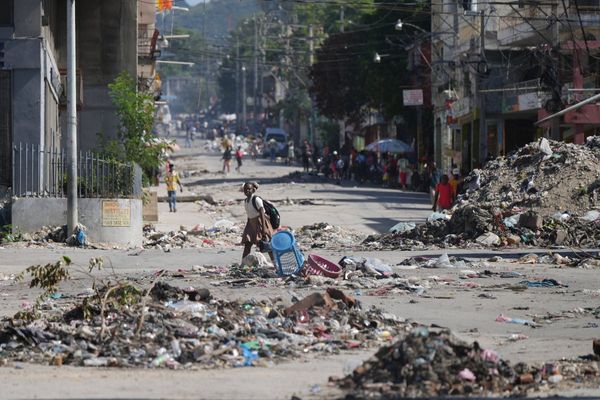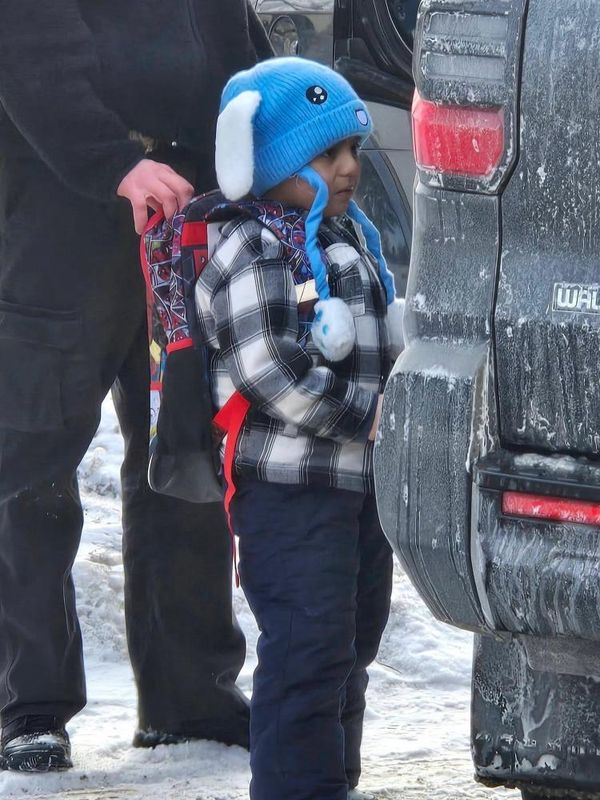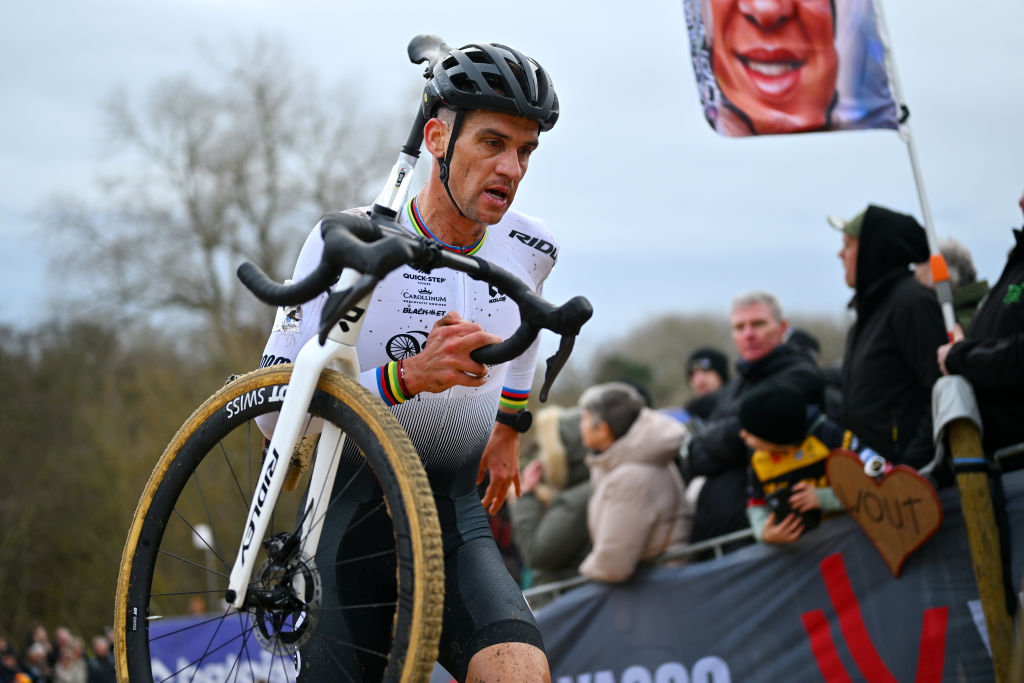
Bringing it all back home.
When Zdeněk Štybar speaks to Cyclingnews on Monday afternoon, he is stopped somewhere on the endless expanse of the German Autobahn, making the long journey back to the Czech Republic from the previous day’s World Cup in Hoogerheide.
Štybar has travelled roads like this more often than he can remember in a career of journeys: from cyclocross to the Classics, from his native Planá to the Tour de France.
Now the only date left on his calendar is the Cyclocross World Championships on Sunday. His last journey as an elite athlete is to Tábor and a final farewell with his family and friends.
The finality of the occasion is something he’s just about managed to sidestep so far, largely by focusing on the minutiae of the here and now. He had a training camp in Mallorca the other week, for instance, followed by a few days on the Tábor course with the Czech national team. He remains a competitor until the last. Civilian life can wait until Monday.
"You know, somehow I still don't really realise," Štybar tells Cyclingnews.
"In Hoogerheide, when I passed the line, I was a little bit emotional, but it was because all the people were cheering for me. It was one moment, but on the other hand, I've been busy trying to be in the best shape possible. I'm too busy to really realise it's the end. I think it will all come later, but right now I'm too busy to realise it."
Even so, Štybar felt compelled to mark his final World Cup race at Hoogerheide.
Since the expiry of his contract with Jayco-Alula on December 31, he has been riding as a privateer, and he was able to find at least one upside to being without a salary. Finally free of sponsorship obligations, he availed of the space on his kit to give a shout-out to his family, friends and supporters on Sunday in a variety of languages – Thank you. Danke. Děkuji.
"I always took lots of the glory but the people around me never got to be in the picture, so I wanted to thank them like that," Štybar says.
"And let's face it, I was not responsible to anyone, I was riding for myself, so I just thought it would be something I could do to thank the people who supported me for all of my career."
Injury and illness fractured the last three years of Štybar's career into a frustrating piecemeal of comebacks, and his lone season at Jayco-Alula was itself cloven in two by double iliac artery surgery in April. Although he returned to the peloton by August, it was too late to patch together a deal for 2024, even a short-term one as far as his beloved cobbled Classics.
The 38-year-old held discussions with Czech Continental outfit ATT about doing some racing in their colours in 2024, although at this juncture, his role might end up being one of consultant.
"There are still some talks with ATT. Actually, this week it should be all done and decided what's going to happen," says Štybar.
He also passed the UCI directeur sportif examination in November, which opens another, possible avenue, though there is nothing set in stone for the months ahead.
"I wasn't ready for the end of my career," he admits. "But on the other hand, maybe that's a good thing. I can just calm down, focus on my family, be more with them and then start up some new project, whatever that will be."
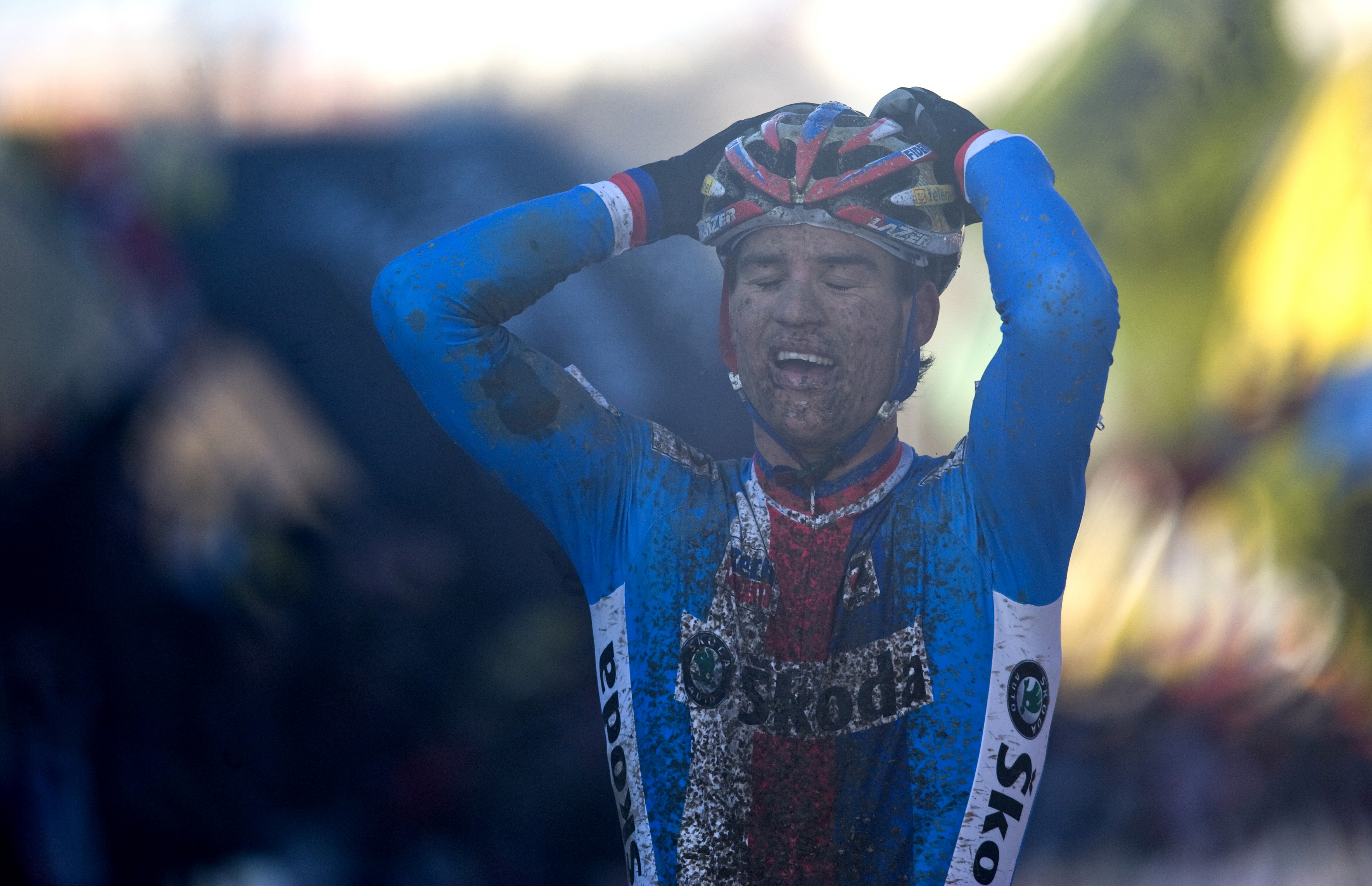
Tábor
He didn't plan it this way, but at least there is a certain symmetry about Štybar bringing the curtain down on his top-level career in Tábor, the course where he learned his trade and, later, where he conquered the world.
The Czech town is hosting the World Championships for the fourth time, and the story of Štybar's cycling life can be sketched out by each event.
Back in 2001, the 15-year-old Štybar was too young to make the Czech junior squad, but he travelled to South Bohemia with his father to watch from behind the barriers as his compatriot Petr Dlask jousted with Erwin Vervecken, eventually taking silver.
"Watching that made me want to participate in the Worlds, but probably at that time I didn't dare to believe I could be world champion one day," Štybar says.
"I think that was just aiming too high. I didn't come from a cycling family, and I had to fight for everything."
Still, the Czech sweep of the junior men's medals that weekend must have served as encouragement. That reality wasn't so far away, after all. Twelve months later, Štybar made his Worlds debut in Zolder and the bronze medal he picked up behind Kevin Pauwels in the junior race was his first calling card at the international level.
As Štybar was bludgeoning his way around the Zolder course at the Superprestige in November, he found himself smiling.
"I thought back and realised, damn it, I passed here for the first time 22 years ago..." he laughs.
If Štybar was but a raw apprentice on his first Worlds appearance as a junior, he was a master of his craft by the time the event returned to Tábor in 2010.
After successive elite silver medals behind Lars Boom and Niels Albert, Štybar was 25-years-old and ready to win. Not even a flat tyre on the opening lap could dim the burning sense of destiny he felt about that race. He soloed to a resounding victory to become the second Czech champion after Radomír Šimůnek in 1991.
"I knew the parcours perfectly. For every corner, I knew exactly what gear I would be riding, and I was ready for every scenario," he recalls.
"When I had the flat tyre in the first lap, I was mentally so ready for it, I just changed the bike and started again.
"It was probably the nicest victory. And it changed my career, of course. Afterwards, everything was somehow easier. The doors were a bit more open than when I was just a rider from Czechia coming to Belgium. When you're world champion, it changes something in your life."
Plenty had changed in Štybar's life by 2015 when Tábor again played host to the Worlds.
He had claimed two more rainbow jerseys, in Sankt Wendel and Hoogerheide, and he had also firmly shifted the emphasis of his career from cyclocross to road after signing with QuickStep in 2012. As his fourth season with the team approached, Štybar was now essential to their whole operation on the cobbles.
On the back of suffering a heavy crash at the Eneco Tour the previous August and then injuring his shoulder in an increasingly rare cyclocross outing in Ardooie earlier that winter, Štybar opted to sit out his home Worlds to ensure he was ready for the road season. He surely arrived at the decision after some gentle prompting from QuickStep management, but Štybar has no regrets.
"It was very difficult, but I also knew that year it didn't fit into the programme. And I went on to have a really good spring, I won Strade Bianche and I was second in Paris-Roubaix, and then later I won a stage of the Tour, so it was the right decision," Štybar says.
"Back then, the teams didn't really dare to give you the programme of doing cyclocross and then going straight into the Classics. At that time, no one could really imagine skipping Tirreno or Paris-Nice. So I think the team also said, 'You've won it three times, so maybe now it's time to focus on the road.'"
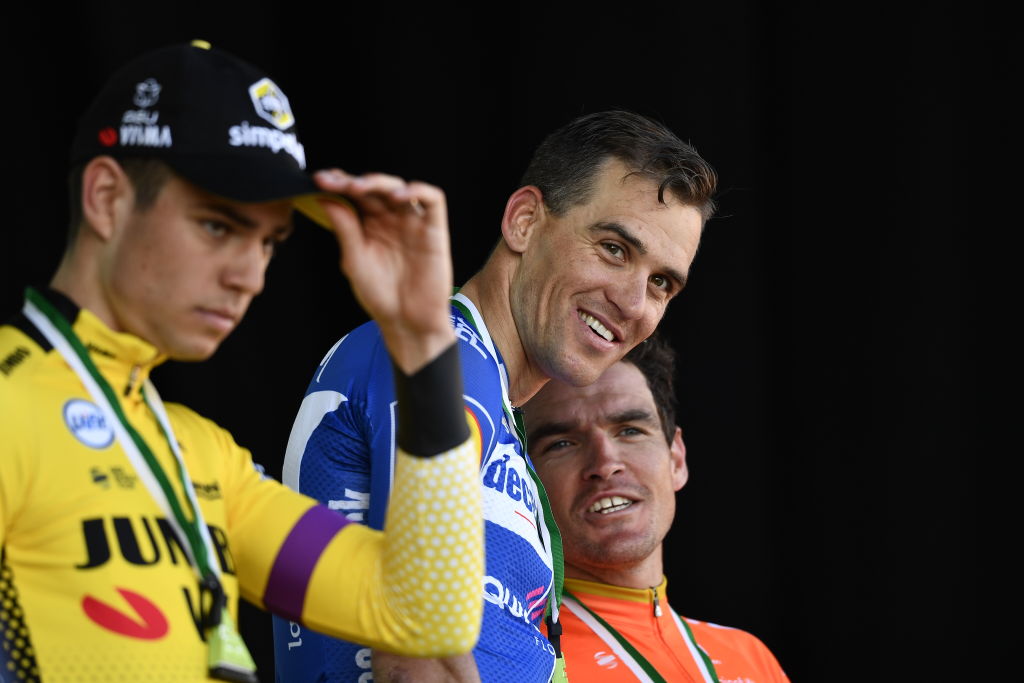
Van der Poel
During his time at QuickStep, Štybar limited himself to fleeting cameos in the discipline that launched him, even though his third world title in 2014 firmly suggested that riding cyclocross and chasing Classics were not mutually exclusive endeavours.
That winter, Štybar had dipped into the cyclocross scene with some success over the Christmas period and then swooped back in to claim the rainbow jersey just before the road season.
In hindsight, Štybar had unwittingly knocked up a rough sketch of a template that would go on to serve Mathieu van der Poel and Wout van Aert so well as they transitioned to the road, but the Czech never followed it again himself with any real intent.
Štybar remains convinced that there are limits to how many cyclocross dates a road rider can reasonably shoehorn into his calendar.
He points to how Van Aert and Tom Pidcock each reined back their cyclocross commitments this winter, while Van der Poel has even suggested that Sunday's Worlds might be his last for some time.
"Road cycling is on such a high level so if you really want to perform and race with the best ones, then it's too close to the season and it costs a lot of energy, especially mental energy," Štybar says.
"I'm absolutely in favour of doing cyclocross, and it can be great to break up the winter, but it has to be in addition to the road training. Every time you do a cyclocross race, you miss a small part of the preparation for the road season.
"If you really want to be at the top level in the spring, you have to skip some races. At some point, you have to decide what you really want, because if you're missing just a little bit, even 1%, that can cost you on the road."
With Van Aert and Pidcock both absent and already focused on their road seasons, Van der Poel is the overwhelming favourite to win in Tábor, and Štybar can't see anybody denying the Dutchman a sixth world title on Sunday.
"No, I don't think anyone can beat him, there's no way," he says. "Even if he has mechanical problems, he can close a gap of a minute on that course."
And yet Štybar isn't there to make up the numbers.
"I'm still going for it, I actually want to win," he says, even if knows logic dictates otherwise. Even a podium spot is surely well beyond his reach at this point, but taking on impossible odds has always been an intrinsic part of the appeal of this sport. Come what may, he'll ride around that famous old course in Tábor nine more times with feeling. He doesn't know any other way.
"I'm in quite good shape, but I know I can't change the body from road to be explosive for cyclocross just like that," Štybar says.
"I don't want to say I'll only be happy with a top 10, but it doesn't really matter if I'm 10th, 15th or 20th, it's just more for my mind.
"I just want to stop with a feeling that I did everything. I want to show that I was professional, motivated and enjoying it, right to the end."


